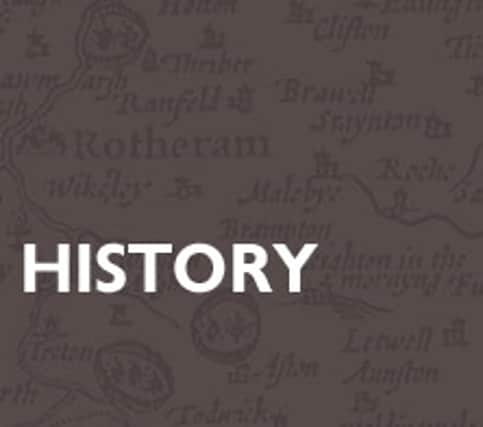CRIME IN OLD ROTHERHAM: Fraud from the Burial Club


As part of the society’s work, the Grand Order had a funeral department which made payments to the family of members who had died. The families were entitled to £10 upon death, and if a member’s wife had died, he would be paid £7 towards her funeral expenses. At a meeting which had been held on April 3, a decision was made that £50 would be deposited in the Sheffield and Rotherham Banking Company. It was to be kept in the bank and only paid out for the benefit of the members of the local society. The money was deposited by Michael Steer and two other member, John Handley and the secretary Thomas Wightman on the following day.
On May 28, Michael Steer went to the bank, and produced the passbook in which the account with the society was held. He told the clerk that he was the district master of the society and that he had been authorised to draw out £10 on account. He signed a cheque on behalf of the club and the cash was given to him. On July3 he went again to the bank and drew out another £10. On August 2 he withdrew a third amount of £12, telling the clerk that he had a great deal of money to pay out, but he hoped shortly to have some money to deposit. At some point during July of 1844 Steer had stepped down as district master, but he continued to be a member of the society. The fraud was discovered, and on August 10 Steer was arrested by John Bland, the Chief Constable of Rotherham, charged with fraud from a bank using false pretences. Two days later on August 12 the prisoner was brought into the magistrates court at Rotherham.
Advertisement
Hide AdAdvertisement
Hide AdThe first to give evidence against the prisoner was William Carson of Sheffield, who had been appointed treasurer of the society on July 3 1844. He told the court that as treasurer, the rules were that 'no part of the funds of the society could be taken out of the bank, without his sanction and consent. Carson categorically stated that he had never authorised Steer to take any money out in the society’s name, and that Steer was well aware of the rules. John Handley gave evidence confirming the deposit of the money into the bank, and corroborated the previous wittiness’s testimony. William Dyson a clerk at the bank stated that on May 28 Michael Steer produced the passbook, in which the account with the society was held, and said that he wanted to draw out some money.
The witness said: “I asked him if he was the president of the club and he answered that he was the district master, which I understood to be the same thing. He said that he had monies to pay on account of the club and he had the cheque book.”
Dyson admitted that if he had not produced the passbook and the cheque book, he should not have paid him the money. The prisoner was found guilty and committed to take his trial at the next Sheffield Sessions
On Friday September 13 1844 Michael Steer was brought before the Intermediate Sessions at the Town Hall in Sheffield. His defence solicitor, Mr Pashley, stated that the society itself was at fault, by allowing just one individual to draw money out of the bank.
Advertisement
Hide AdAdvertisement
Hide AdAt the very least, that person should have been accompanied by another society official. He also blamed them for not informing the bank of the names of the authorised persons who were allowed to draw out money.
The prisoner was found guilty, but the chair to the magistrates warned him that it was a very serious felony, and ‘you have taken the money from over 300 local persons, who have suffered by your conduct’. He added that ‘were it not for the culpability of the society, the court would have passed a much more severe sentence on you’. He then ordered Michael Steer to a term of imprisonment for six months in the Wakefield House of Correction.
Before the prison left the court the prosecution, Mr Wilkins asked that a full investigation be made by the society, and that they improve their banking arrangements to prevent such a fraud happening again. Mr Carson, on behalf of the society, said that it was a public matter and for the sake of public protection it would be fully investigated.